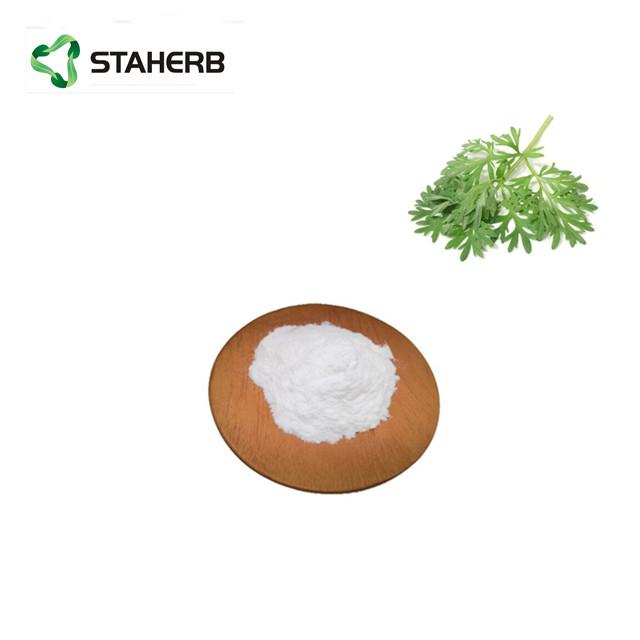Side Effects and Cautions in Artemisinins Applicat
Artemisinins, the potent antimalarial group of medicines, are generally reported to be very well tolerated by patients. They have undoubtedly been proven to have a superior efficacy, a better safety profile, and fewer side effects than quinidine. Their application is now considered as the most appropriate therapy, which has to be acquired promptly after diagnosing the disease. It is considered that the drugs used in combination therapies can contribute to the adverse effects experienced by the patients undergoing treatment.
On the other side, some side effects have been reported, which could happen to a limited number of the people treated. The effects are highly individual, depending on drug doses and treatment durations. Moreover, it is very important to note that, generally, toxic effects have been less frequent with the artemisinins than with other antimalarial agents.
Some of the most common toxic effects that have been identified are as follows: nausea, vomiting, anorexia, mild blood abnormalities and dizziness. It is, however, assumed that these symptoms are probably due, in most cases, to the acute malaria itself, rather than to the drugs applied. More serious effects, such as anemia, hemolysis, and elevated levels of liver enzymes, have been identified rarely.
Allergic reaction is reportedly very rare, with an estimated risk of approximately 1 reaction per 3000 treatments. Neurotoxicity is one of the greatest concerns regarding artemisinins. There are studies showing that the intramuscular application has acted as more toxic than the oral intake. By any treatment route, fat-soluble artemisinins (artemether) have been found to be more toxic than the water-soluble ones (e.g. artesunate).
A serious concern about artemisinins is their possible embryotoxic effects. However, investigations are underway; limited data are available on the use of intravenous artesunate for severe malaria during pregnancy, so general and explicit conclusions are unfounded to be drawn yet. The WHO have recommended artesunate or quinine during the first three months of pregnancy, and artesunate as the first-line therapy during the second and third trimesters.
The potential life-saving benefits may require the use of the drug in pregnant women despite the potential risks. Artemisinins are contraindicated in patients with hypersensitivity. Caution should be exercised in patients with liver or kidney diseases, heart problems, infections, or when other medications are being taken. Cardiotoxicity and hepatic side effects may be observed when high doses have been used. Other possible undesired effects are: headache, weakness and tiredness, loss of appetite, fever, chills, abnormal heartbeat, rash, some gastrointestinal and nervous system side effects, etc.
On the other side, some side effects have been reported, which could happen to a limited number of the people treated. The effects are highly individual, depending on drug doses and treatment durations. Moreover, it is very important to note that, generally, toxic effects have been less frequent with the artemisinins than with other antimalarial agents.
Some of the most common toxic effects that have been identified are as follows: nausea, vomiting, anorexia, mild blood abnormalities and dizziness. It is, however, assumed that these symptoms are probably due, in most cases, to the acute malaria itself, rather than to the drugs applied. More serious effects, such as anemia, hemolysis, and elevated levels of liver enzymes, have been identified rarely.
Allergic reaction is reportedly very rare, with an estimated risk of approximately 1 reaction per 3000 treatments. Neurotoxicity is one of the greatest concerns regarding artemisinins. There are studies showing that the intramuscular application has acted as more toxic than the oral intake. By any treatment route, fat-soluble artemisinins (artemether) have been found to be more toxic than the water-soluble ones (e.g. artesunate).
A serious concern about artemisinins is their possible embryotoxic effects. However, investigations are underway; limited data are available on the use of intravenous artesunate for severe malaria during pregnancy, so general and explicit conclusions are unfounded to be drawn yet. The WHO have recommended artesunate or quinine during the first three months of pregnancy, and artesunate as the first-line therapy during the second and third trimesters.
The potential life-saving benefits may require the use of the drug in pregnant women despite the potential risks. Artemisinins are contraindicated in patients with hypersensitivity. Caution should be exercised in patients with liver or kidney diseases, heart problems, infections, or when other medications are being taken. Cardiotoxicity and hepatic side effects may be observed when high doses have been used. Other possible undesired effects are: headache, weakness and tiredness, loss of appetite, fever, chills, abnormal heartbeat, rash, some gastrointestinal and nervous system side effects, etc.
